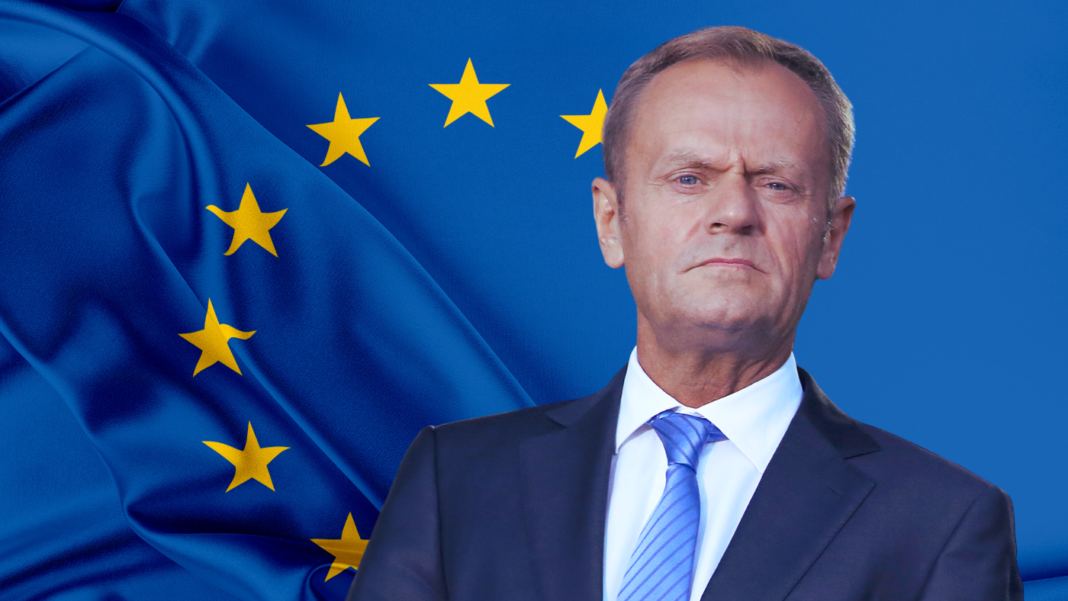In the wake of Polish Prime Minister Donald Tusk’s ominous warning that Europe has entered a ‘pre-war era’, the continent finds itself at a pivotal moment, facing unprecedented insecurity and uncertainty. Tusk’s somber declaration underscores the gravity of the geopolitical tensions gripping Europe, a sentiment echoed by recent geoeconomic analyses that highlight the complexities of global economic relations.
“War is no longer a concept from the past. It is real, and it started over two years ago. The most worrying thing at the moment is that literally any scenario is possible. We haven’t seen a situation like this since 1945,”
Polish Prime Minister, Donald Tusk
“War is no longer a concept from the past. It is real, and it started over two years ago. The most worrying thing at the moment is that literally any scenario is possible. We haven’t seen a situation like this since 1945,” Tusk stated in an interview with the European media grouping LENA on Friday 20th April, 2024.
Against this backdrop, the future of Europe’s investment migration attractiveness hangs in the balance. The confluence of geopolitical instability, exacerbated by events such as Russia’s invasion of Ukraine, and economic fragmentation poses significant challenges to Europe’s investment landscape.
At the heart of this uncertainty lies the question: what will insecurity and uncertainty spell for Europe’s investment migration attractiveness and future?
Tusk’s warning serves as a stark reminder of the fragility of Europe’s post-war peace and stability. The spectre of conflict looms large, casting a shadow over the continent’s economic prospects. In such a climate of heightened geopolitical risk, investors may grow wary of committing capital to a region teetering on the brink of instability.
Moreover, the geopolitical landscape is further complicated by the potential return of former US president Donald Trump, whose NATO-skeptical stance raises doubts about the reliability of American military assistance. The prospect of a less predictable transatlantic relationship adds another layer of uncertainty for investors evaluating Europe’s investment potential.
Amidst these geopolitical headwinds, the COVID-19 pandemic and Russia’s war in Ukraine have exposed vulnerabilities in Europe’s interconnected economy. Supply chain disruptions and energy shortages have rattled markets, raising doubts about the reliability of global trade. In this environment, security considerations increasingly dictate global economic relations, with policymakers grappling with the need to balance resilience with prosperity.
The European Union, despite its exposure to fragmentation, stands as a potential bulwark against the tide of uncertainty. The EU’s large and diverse membership provides a platform for supporting European-based supply chains and fostering economic resilience. However, realizing this potential requires concerted efforts to deepen the single market and uphold a rules-based global trading system.
Geoeconomic fragmentation is already reshaping trade and investment flows, with countries gravitating towards politically aligned blocs and reconfiguring supply chains to mitigate geopolitical risk. The EU’s openness to trade and investment leaves it particularly vulnerable to disruptions, but also uniquely positioned to build resilience through intra-EU integration.
However, achieving this goal necessitates bold reforms to harmonize taxes, complete the capital markets union, and strengthen banking integration. By leveraging its innovation and manufacturing strengths, the EU can mitigate the impact of geoeconomic fragmentation and foster sustainable growth.
In conclusion, Europe’s investment migration attractiveness and future hang in the balance amidst geopolitical uncertainty and economic fragmentation. Tusk’s warning serves as a sobering reminder of the challenges ahead, but also as a call to action for policymakers and investors alike.
By deepening intra-EU integration and upholding a rules-based global trading system, Europe can navigate the stormy seas ahead and emerge stronger and more resilient in the face of uncertainty.






